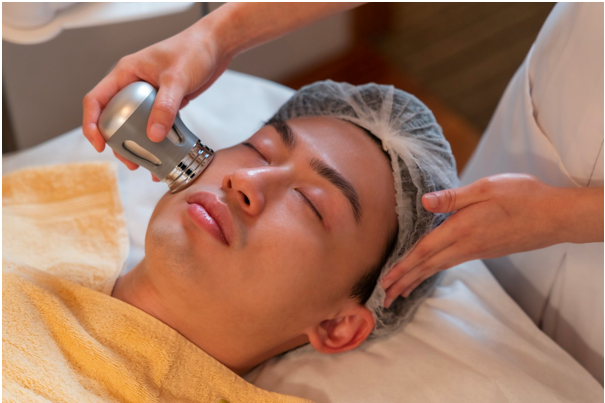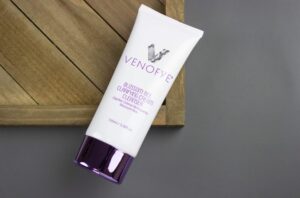Many people want their skin to be healthy and radiant, but that requires more than just using expensive products or treatments every now and then. Taking good care of your skin requires good habits and understanding what your skin needs. This ultimate guide is designed to teach you the basics of beauty and skin care so that you can achieve and maintain radiant skin, no matter your age.
How to Determine Your Skin Type
Knowing your skin type is the first step to good skin care. Knowing what type of skin you have (oily, dry, sensitive or combination) will help you choose the right products and care methods. For oily skin, oil-free or matte products may be best, while deeply hydrating products are best for dry skin. For sensitive skin, it is better to use gentle, fragrance-free products, while for combination skin, different areas of the face often require different approaches.
Cleansing is the first step to healthy skin.
A very important part of any facial care routine is cleansing. A good cleanser removes dirt, oil, makeup, and other impurities that can clog pores and make your skin look dull or prone to breakouts. It’s best to wash your face twice a day, morning and night. Using cool water and a gentle, sulfate-free cleanser will help protect your skin’s natural barrier and prevent moisture loss while cleansing your skin.
Why is Moisturizing Important?
No matter your skin type, you need a moisturizer to keep your skin healthy and fresh. Moisturizers keep your skin hydrated and prevent dryness and irritation. Hydrogel, glycerin, and ceramides are some ingredients to look for when you want to deeply hydrate your skin. If you have oily or acne-prone skin, choose a moisturizer that is lightweight and won’t clog your pores.
Sun Protection, Lasting Beauty
One of the most important ways to keep your skin healthy and youthful is to protect yourself from the sun. UV rays can accelerate the aging process, cause dark spots, and even skin cancer. Even on cloudy days, you should wear a broad-spectrum sunscreen with an SPF of at least 30 every day to protect your skin from harmful UV rays. Reapplying sunscreen every two hours will help you stay safe while outdoors.
Exfoliation makes your skin smooth and radiant.
Exfoliation removes dead skin cells from the surface of your skin, leaving it looking brighter and softer. Regular cleansing also allows your other skincare products to penetrate deeper into your skin. Instead of harsh, physical brushes that can be harsh on your skin, use chemical exfoliants like AHAs and BHAs. This is a gentle but effective method.
Hydrates from the inside out
It’s not enough to just use a moisturizer to keep your face hydrated; what you eat matters too. Drinking plenty of water every day helps your body flush out toxins and keeps your skin healthy. Eating water-rich foods like fresh vegetables, cucumbers, and tomatoes can also help you stay hydrated. To keep your skin fresh, avoid drinking too much alcohol and coffee.
Foods That Are Good for Your Skin
What you eat directly affects the health of your face. A diet rich in antioxidants, vitamins, and healthy fats helps heal and brighten your skin. For healthy skin, eat nuts, berries, bananas, and fatty fish. Vitamin C helps the body produce collagen, vitamin E protects against toxic stress, and zinc heals and fights acne.
What You Don’t Know About Stress and Sleep
Stress and lack of sleep can be bad for your face. Stress increases the hormone cortisol, which can worsen skin problems and cause breakouts. While you sleep, your body repairs and creates new skin cells. That’s why it’s important to get enough rest to keep your skin looking healthy. By focusing, exercising daily, and getting 7-9 hours of sleep every night, you can make your face look a lot better.
Regular care is very important
When it comes to facial treatments, consistency is key. Skipping steps or switching from one product to another can irritate your skin and give you inconsistent results. The best long-term results come from following simple, effective habits that fit your facial needs. Cleanse, moisturize, and protect your skin every day. As you get older or as the weather or seasons change, you should change the way you care for your skin.
Apply sunscreen immediately, or don’t apply it at all. When using new products, always test them on a small patch of skin first. Don’t touch your face too much or pick at the spots, as this can cause scarring and infection.
When to See a Dermatologist
Many skin problems can be solved at home with the right care, but some conditions require professional treatment. If you have acne that won’t go away, extremely dry skin, blemishes, or rapid changes in skin texture or color, see a dermatologist. It’s also important to check your skin regularly for moles or spots that look unusual to spot early signs of skin cancer.
Natural Remedies and DIY Projects
There are many natural products in your kitchen that can help your face. Honey, aloe vera, green tea, and oatmeal are known to soothe the skin and reduce inflammation. Do your research first and test any home remedy on a small patch of skin. Natural doesn’t always mean safe for all skin types. Natural remedies should complement your daily skincare routine, not replace it.
Take care of your skin all year round
The weather can change the needs of your face. Since the winter months are colder, you may need thicker and more hydrating creams and masks. It’s even more important to use a lighter solution and keep oil under control in the summer months. Pay close attention to the condition of your skin and adjust your daily skincare routine as needed to keep your skin smooth and comfortable all year round.
Accepting aging with grace
Aging is a normal process. Many people try to avoid the signs of aging, but it’s important to view them as a part of beauty. Anti-aging skincare is all about keeping your skin hydrated, protecting it from the sun, and using ingredients that promote collagen and cell renewal. Retinol, peptides and antioxidants in skincare products help keep skin firm and reduce fine lines. Remember that self-confidence and self-care are the most important factors for beauty, regardless of age.
Healthy skin is the first step to beauty.
With the right knowledge, habits and care, you can achieve healthy and radiant skin. Knowing what your skin needs and always taking good care of it can boost your self-confidence and make your skin look better. From cleansing and moisturizing to protecting your skin from the sun and keeping it hydrated, every step contributes to the optimal appearance of your skin. Remember that true beauty starts with beautiful skin, and beautiful skin starts with you.




